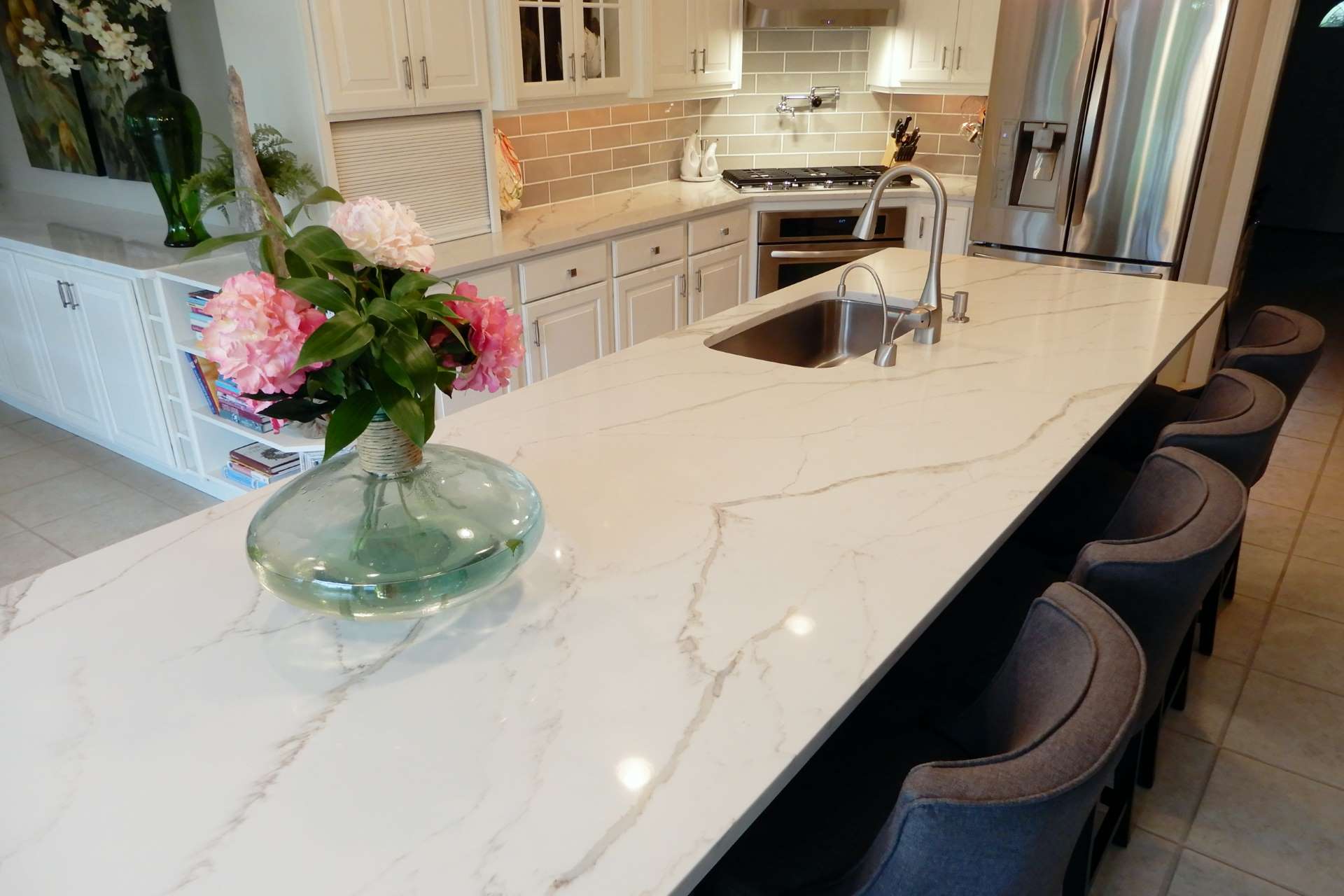
Kitchen design is evolving, but granite and quartz remain two of the top contenders for countertop surfaces in 2025. Both bring serious strengths to the table, but the best choice depends on your kitchen’s functionality, aesthetics, and long-term care expectations.
Whether you’re a homeowner or a designer, here’s a grounded breakdown of how these materials stack up—beyond surface-level comparisons.
Granite: Raw Elegance with Natural Variation

What it is: Granite is a 100% natural igneous stone, quarried, cut, and polished to showcase its organic veining and mineral blends.
Pros:
- Heat Resistance: Place hot pots and pans directly on granite without worry.
- Scratch Resilience: One of the hardest countertop materials; knives won’t leave a mark (but will dull your blade).
- Natural Uniqueness: Each slab is distinct—a bonus for homeowners who want a one-of-a-kind kitchen.
- Outdoor-Ready: With proper selection, granite performs well in exterior kitchens or grilling stations.
Cons:
- Requires Sealing: Being a porous stone, it needs sealing every 3-5 years to stay stain-resistant.
- Potential for Chips: Corners and edges may chip if heavy cookware is dropped.
Pro Tip: Not all granites are equal outdoors. Ask your fabricator which varieties are UV-safe and resin-free to avoid sun-related damage.
Learn more about our granite options here
Quartz: Engineered Consistency and Convenience

What it is: Quartz is a man-made surface composed of ~90% ground quartz stone and 10% polymer resins and pigments. The result? Predictable patterns and built-in sealing.
Pros:
- Low Maintenance: No sealing required. The non-porous surface resists stains, bacteria, and liquids.
- Design Flexibility: Wide color palette and consistent patterns make it easier to match cabinetry and flooring.
- Durability: Quartz is hard, dense, and resists chipping better than most natural stones.
Cons:
- Heat Sensitivity: Resins are prone to burning or discoloration under high heat. Always use trivets.
- Indoor Use Only: UV exposure causes yellowing. Not suited for outdoor kitchens.
Pro Tip: If you want quartz’s look with fewer limitations, install it on perimeter counters and choose a heat-resistant surface (like granite) for the island or cooking zone.
Explore our quartz countertop collection here
Which One Wins in 2025?
There is no universal winner—only the right fit for your project.
Choose granite if you prioritize natural character, longevity, and heat resistance. Opt for quartz if you prefer color control, minimal upkeep, and a seamless aesthetic. Hybrid kitchens using both materials are trending in 2025, offering balance and visual contrast.
Ready to Talk Options?
Not sure which surface fits your lifestyle or your client’s needs? At Cosmos Marble and Granite, we don’t just cut stone—we guide decisions that last for decades. Visit our showroom or get a free quote and explore the textures, tones, and technical details with seasoned experts by your side.

Leave a Reply